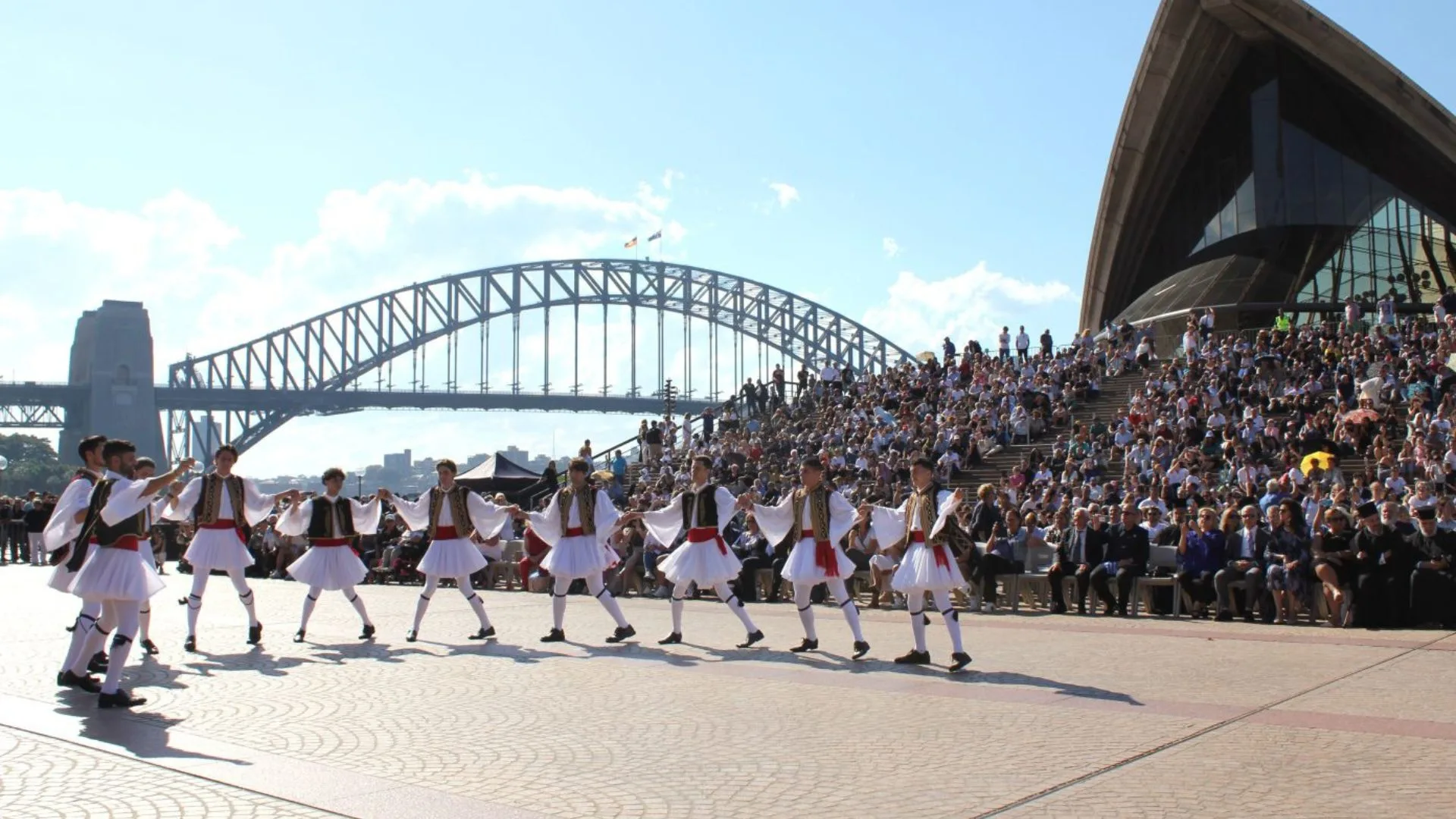In our previous article we referred to the important year 2035, a milestone for the presence and evolution of Hellenism in Australia. From this year on, the role and contribution of the first generation of Greek immigrants to Australia will be completed, forcing their successors and their grandchildren to take the baton for the progress of the Hellenic Diaspora in their hands.
But why have we been referring for thirty years to the year 2035, as a year of catalyst year, the year of the end of the first cycle of migration and settlement of Greeks in Australia? What are the consequences? Is Hellenism ready and adequately organized to face the consequences and side effects that will emerge? Let us try to answer to these questions.
In the first place, why do we define the year 2035 as the catalyst year? We end up in this year because demographically it is the year of completion of the biological exodus of the Greeks of the first generation. The total of 270,000 Greek and Cypriot immigrants who settled in Australia between 1946 and 1976 belonged demographically to the following age groups: four per cent of the arrived immigrants were born before 1920. A total of 20% were born in the 1920s and therefore upon arrival were thirty years old. Approximately, 50% were born in the 1930s and were on their arrival on their twenties, the sturdy children. A total of 20% were immigrants born in the 1940s, who had arrived either as accompanied children or as immigrants in the 1970s, and fewer later. Six per cent were born after 1950 and were mostly accompanied children. The above figures demonstrate that 90% of first-generation Greek immigrants, upon arrival and settlement in Australia, were born between 1919 and 1949. In 2035, it is estimated that 90 percent of those pioneer migrants will not be alive. And those who live will be, despite current life expectancy, on average over ninety and a hundred years. With statistical cross-tabulations it becomes obvious that out of the 270,000 Greeks who settled in Australia, a few hundred Greeks will survive.
Therefore, in 2035, the cycle of first-generation Greek settlement finally closes. The Greek nuclear family, the cohabitation of two generations under the same roof, in Australia will be severely tested, as it was tested in urban Greece, where lately, young people prefer to leave the parental home, and live independently and “emancipated.” In this way of independent living, the costs of livelihood increased, state care increased, and the family ceased to be the mechanism, or a carrier of social benefits to aging parents and grandparents. During the difficult years of crises and poverty in Greece, but also in Australia, it was the family that took care of the protection and the ministry of elderly and sick parents. The women of the family had from institutional tradition the role of nurses, attending assistants, caring for bedridden parents, grandparents suffering from dementia. The woman was the social worker of the family and the word “nursing home”, the modern spinalonga, had not yet been established in the Greek dictionary. Until the elderly and the sick left this life, Greek mothers, daughters-in-law and daughters were the staff responsible for family care and service. Family members planned, set care days and took care to minister to the needs of the elderly and sick, until the “nursing home” (from a business point of view) was invented to stack there those who gave birth to us and raised us, so that freely and without effort and care, we could enjoy the many things we inherited from their work and their sacrifices.
So, what will be the consequences of the biological or nursing home exodus of first-generation Greeks after 2035? What will successive generations of their descendants do with what has been bequeathed to them? What will become of the hundreds of buildings that have been bought, built and generally acquired by Greek community organisations? Often, their acquisition was not made out of necessity. Usually, the cause of their acquisition was a useless and unnecessary whim. Perhaps a conceit, or an arrogance, a passion of wild and passionate adoration for brickwork. It is true, that almost every Greek regional association, even those which were not, legally, recognised, finally bought a building, just for their opponents to burst! What will become of the huge number of buildings and premises which associations and collective bodies had purchased, and whose owners will be dead after 2035? The problem becomes almost a tragedy when we know that the descendants will not burst to preserve or maintain them.
How much poison was poured into our intra-Greek relations out of envy and arrogance, out of sterile selfishness, out of a “you know who I am!”? We experienced families to be torn apart, relationships to be shattered, clubs to collapse, lawyers to enrich their wealth as a result of the intra-communal civil courts, buildings to be sold to cover the legal costs of schismatic lamentations. And yet there were many, a plethora, I estimate over 800-900 buildings, valuing a total fortune of more than $2000 million. What will become of these buildings, the vast fortune for which descendants, with few exceptions, remain totally indifferent? Will all those buildings and premises come into the hands of the Australian authorities, or will they be transferred to the Church or the Communities or in various charitable institutions, even towards the Spinalongas which we call “old people’s homes”?
We will further examine this in our articles to follow.
*Professor Anastasios M. Tamis taught at Universities in Australia and abroad, was the creator and founding director of the Dardalis Archives of the Hellenic Diaspora and is currently the President of the Australian Institute of Macedonian Studies (AIMS).
